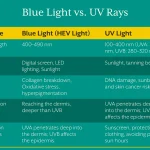
A proper skin care routine for acne-prone skin can be frustrating, even counterintuitive. Wearing a sunscreen and applying moisturizer are no-brainers, but skipping hydration will result in more oil, clogged pores and breakouts. So what should you do? Follow the tips below for a more successful skin care routine. Listed below are some essentials for a good skin care regimen for acne-prone skin.
In addition to acne-specific skin care regimen, you should also avoid products that contain harmful ingredients. Acne is a reaction to certain food and environmental factors, which is why it’s vital to avoid dairy products and sugary foods. Additionally, avoid stressful situations – they can also make your skin look worse. Stress and anxiety can also contribute to acne outbreaks, so take time to relax and nap whenever possible. After all, your skin needs time to recover from daily stresses.
Changing your skin care routine to one that includes a mild cleanser is a great way to avoid the worst side effects of the acne treatments. Acne cleanser with antibacterial properties is also beneficial. It helps remove dirt and makeup that accumulates during the day. Avoid using harsh scrubs, as these can irritate the skin. Micellar water and gentle cleansers are excellent alternatives. Makeup brushes should be cleaned daily as well.
If you have oily skin, choose a foaming or creamy cleanser. Regardless of the type of acne you have, be sure to avoid products that contain mineral oil or other pore-clogging ingredients. And don’t forget to consult your dermatologist to make sure that you are using products that don’t contain ingredients that can aggravate your skin condition. Using a cleanser and moisturizer can help keep your skin healthy and prevent the onset of acne.
Using a gentle cleansers, such as washcloths, is a great way to clean your face without irritating the acne. You can also use facial oils, including botanical ones infused with farm-fresh extracts. Be careful about the oils, as added fragrances and essential oils can aggravate the condition. Using oils, such as olive oil and maracuja oil, can also brighten and hydrate your skin.
If you have a sensitive or acne-prone skin, use a gel-based cleanser to remove excess oil and dirt. You can also use a spot treatment separately. It is important to use a cleanser and a toner in the morning and at night. Depending on the severity of your acne, you may need a combination of both. For those with severe breakouts, you may need a prescription for medication.
Toners should be applied after cleansing your face. This step is very important as it is the first step of a skin care routine for acne. A toner should be poured into your palms or a cotton pad before you put on any other products. Exfoliating toners contain glycolic acid. Hydrating toners contain other ingredients that will cause your skin to break out. So, it’s important to apply toners as directed.



